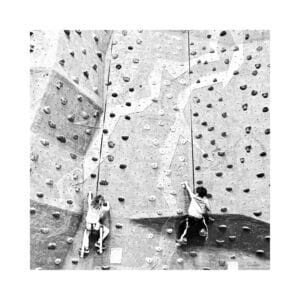A mom of an 8-year-old kid shared with me recently that she loses it when her kid doesn’t follow agreements.
“I can’t trust him”, she said.
“Integrity is of high value to me. I want to know he is honest. If he isn’t honest now, what will he be like when he is 16?”, she continued.
She felt worried.
This is such an important example that could easily harm our efforts in cultivating a growth mindset. Let’s unpack it.
I want to start by acknowledging that fear of the future is so common in parenting. It often creates a black-or-white narrative, which makes us think that someone is either honest or not. When we think about qualities in terms of black or white, it represents a fixed mindset state.
Next, this fear-based narrative is also spiced with conditioning that sounds like: only if you honor an agreement, I can trust you.
Is it true? Let’s explore some questions with honesty.
- Is it possible that the agreement doesn’t honor everyone?
- Maybe… I’m not sure if my younger kid fully understands what we were saying.
- Maybe… I’m not sure if my younger kid fully understands what we were saying.
- Is it possible that the agreement requires skills that the kids haven’t mastered yet?
- I guess… it probably requires self-regulation, communication, and accountability.
- I guess… it probably requires self-regulation, communication, and accountability.
- Is it possible that the kids are worried about refusing and sharing what they truly want and they say, yes, to the agreement just to satisfy you?
- Could be… I don’t know for sure.
- Could be… I don’t know for sure.
- Is it possible that the kids don’t know what to do when the temptation is high?
- Good question…we didn’t cover that.
- Good question…we didn’t cover that.
- Is it possible that your actions are confusing and also contradict the agreement?
- I hope not… I need to ask.
When we assume that our agreements are flawless, when we just focus on whether our kids followed the agreement or not, and what will be the consequences, we might be at risk of cultivating a fixed mindset and disconnection.
When we make agreements with kids, and they fail, these are THE opportunities for everyone to grow together.
The point is to learn TOGETHER how to create agreements that we can actually honor, and how to cultivate the skills needed to succeed in honoring the agreement.
When we put the focus on growth and mastery, the learner is at the center. When the learner fails, we want to observe and ask how does the learner learn best? Which strategies might be helpful? And observe what environment helps them thrive.
Following a narrative that says “I can’t trust you”, creates a lack of trust, and more than that, it puts the kids in a place of proving and silencing what they truly want. They aren’t honest with themselves. The paradox is that we care about honesty and trust.
So where do we go from here?
The purpose of agreements is to add clarity. Let’s use them differently, as tools to nourish the relationships we care most about.
Would you agree to treat your agreements as experiments or as a living “document”?
Give it a try.
Becomers’ weekly challenge
Think about the agreements you have with yourself. For example, you promised yourself to exercise 4 days a week, to disconnect from your phone an hour before bedtime, or to only watch one TV episode, rather than binging.
Reflect – what do you think, feel, and do when you don’t honor these agreements?
- Do you think “I can’t trust myself”? If so, how does it impact the relationship you have with yourself?
- What can you learn from this “failure”?
- What skills do you want to cultivate to be more successful at honoring agreements?
- How can you modify your agreement in ways that meet you where you are? Maybe it feels more doable to start committing to exercise 4 days a week for 20 min rather than an hour? Maybe you want to turn off the automatic episode play?
Growth needs flexibility, openness, creativity and so much more.
But above all, growth takes courage to create a new and empowering narrative for you, for your loved ones, and for those you lead.
Onward,
Liz
P.S. Please forward this to anyone who might find it helpful 🙏


